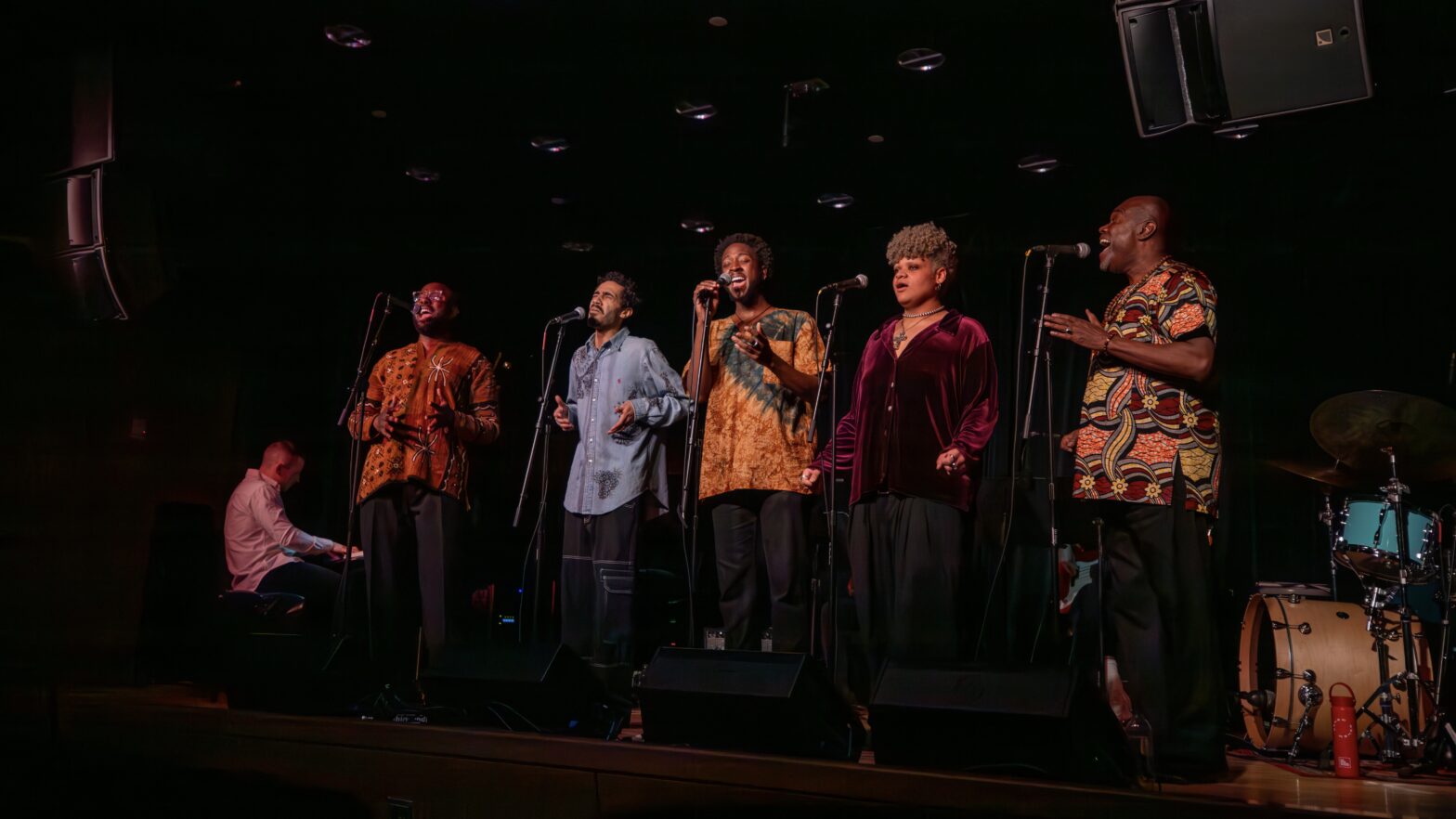To end Black History Month with sentiment and soul, Professor of Jazz and Contemporary Music at The New School, Marlon Saunders directed a show stopping performance on Feb. 29 in honor of the Black jazz artists who shaped the music of America.
Friends, classmates, and family of the performers trickled into the intimate Jazz Performance Space in the 55th W 13th St building with smiles on their faces and excitement for the performance to come.
“He puts on amazing shows, his mind is crazy. Every performance that he puts on, there’s a full crowd,” performer Donnie T. Smith said.
Onstage stood third-years Dwight Thomas and Jordan Smith, Alumni Donnie T. Smith, and second-year Dakota Mack. As the doors closed and the lights dimmed, the group began singing their ooo’s for “Love’s in Need Of Love Today” by Stevie Wonder.
Being current and former students of The New School’s Jazz and Contemporary Music School, the four singers immediately drew the audience in with their innate ability to perform. While the audience was quick to shout and cheer in support, many were quietly soaking in the harmonies and emotion of the ensemble.
The performance rotated from group songs to solos using a variety of music from artists like Charlie Parker, Quincy Jones, and even an original song called “Wake Up” by Smith.
Individually and collectively, the performers shared music personal to their experiences and heritage.
The history behind all the music, but specifically “Strange Fruit” by Nina Simone, contributed largely to the personality of Thomas’s performance.
“I had to research and while researching it I cringed, I felt very uncomfortable because it was very emotional and it was very heavy to perform, weeks of learning the melody, the way the song was written, and I made it my own once I understood it,” Thomas said.
His rendition of the song was noteworthy for some. “That’s a really difficult song, a really heavy song, and he performed it with grace, confidence, and humility,” Audience member Jasmine James said.
While the students in the School of Jazz and Contemporary Music are accustomed to routine performances and showcases, this was one of the firsts in celebration of Black History Month.
“In my seven years that I have been here at the New School, there were no performances for Black History Month that I was aware of. In terms of the jazz and contemporary music, there might have been but it wasn’t really present,” Saunders said.
To pull off the show, Saunders gathered the four men who he thought could pay homage to historic musicians with their voice and spirit. All students accepted, ecstatic to work with Saunders who they call their “musical father.”
“We were honored to do it. He chose, really only the African-American singers that he could, it’s only a few of us,” Jordan Smith said.
One of the most notable aspects of a very lively show was when Saunders joined his singers on stage. With his accompaniment, certain songs took to different shapes even having the performers’ formation physically change into an arched line to then improvise scatting, and ultimately look at eachother.
“It felt very much like church to me when I grew up as a kid, the spirit is moving through and you had to welcome it,” Saunders said.
Not only did this create a unique energy on stage, but showcased the trust between Saunders and his performers. Mack is typically anxious in front of an audience, but with Saunders and the three men by his side, things felt different.
“Everyone wants to be a part of Marlon’s ensemble. He gave me a lot of wisdom and confidence as well,” Mack said.
“Music Of Our Souls” which was to originally be held on Feb. 13, was moved because of a snow day. Smith felt this was for a reason.
“It was very much meant to be that it was canceled on the 13th and moved to the 29th. I feel like this was the way to end the month,” Smith said.
The performance concluded with the song “End of The Road” by Boyz II Men and was followed by an encore of “If I Ever Lose This Heaven” by Quincy Jones, which had audience members running up to the edge of the stage to dance and sing along.
“I was expecting good music and a good time and it was all that,” fourth-year John Masso said.







